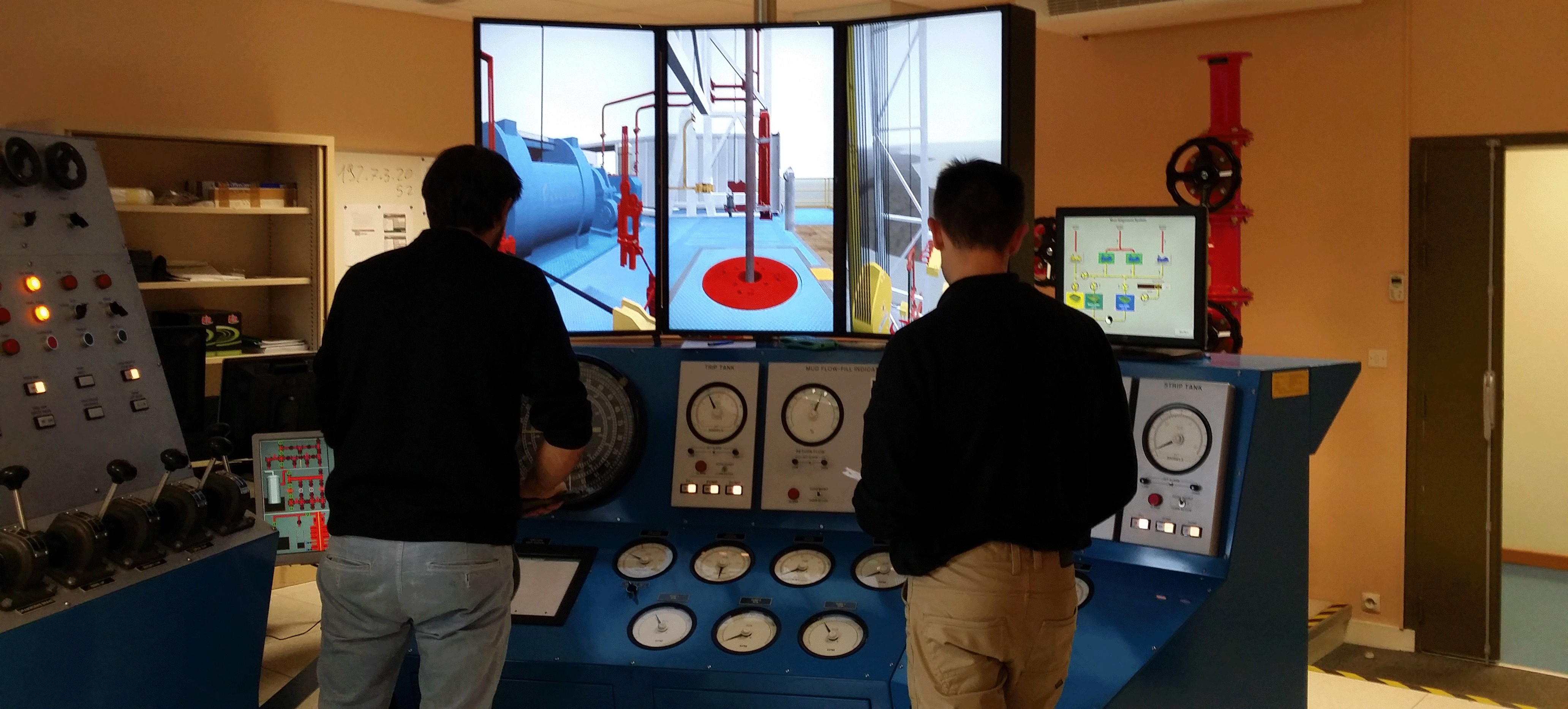One of IFP Training’s solutions for the upstream and downstream sectors is simulation-based trainings. Since the early 90’s, together with our partner Drilling Systems, we enhance knowledge in difficult drilling conditions and improve understanding of drilling and well control practice. Thanks to those programs, we provide IWCF (International Well Control Forum) training and assessments.
Four years ago, we began exploring the possibilities of tailoring training to extend learning beyond “regular well control”. We worked closely with Drilling Systems and managed to develop a software to realistically simulate physical drilling phenomena. This allowed us to create new simulator scenarios which moved beyond traditional well control modelling, including events such as gas dissolution in nonaqueous-based mud, blowout preventer failure and narrow mud windows.
Following a highly successful pilot session for supervisors and engineers, including 5 new scenarios, we launched our very own “Enhanced Simulator Training Program”. The program significantly advances the theoretical, technical and practical experience of supervisors and engineers and helps them understand the job of others including the drilling contractor’s one.
Our lecturer Manuel Fabien explains: “Situations and scenarios we’ve developed for the program come from real cases, thus give trainees a unique opportunity to experience events they may not have seen yet in their careers. This helps to ensure they are fully prepared for any eventuality in the field”.
All phases are covered in-depth. For example, preparation of operations includes a full risk assessment and reinforces the importance of adhering to company rules. The well monitoring and integrity are essential and it is an idea we absolutely want to put in our trainees’ minds. To ensure the well is under control should become like an automatic second nature, in any given situation. Anticipation, contingencies, crew management, change management, versatility are all skills we focus on.
Being able to understand the work of other rig workers is also very important: during the course, we put supervisors and engineers in the unfamiliar drilling contractor’s role. They are then able to experience the other side of hole-making and realize the complexity of this job. Should the response be inappropriate, a “regular” operation can turn into a disaster; but when teams communicate better and understand each other, it mitigates problems in the field.
IFP Training believes in comprehensive training at every stage of an Oil & Gas career. Even after years of experience, there can still be skill gaps and lack of understanding for some operations. People can spend an entire career without facing any operation or problem but, if it suddenly happens, they need to be able to handle the situation.
Simulation helps personnel become familiar with all operations and technologies such as shallow gas kick, ultra-deep-water specificities, gas in riser, cementing job for casing and liners, unusual kicks while logging or running a complex completion string, underground blowout, Managed Pressure Drilling and a lot more. &ldquo
Simulation is definitely the future. Drilling a well on the simulator before actually drilling it, writing the drilling program with drilling engineers and drilling it with the supervisor’s instructions. This is where our industry’s future lies!” says Fabien.
As well as an IWCF certification, IFP Training provides training in a wide variety of operations, covering most stages of a well, on all types of rigs. Upon request, we can design tailor-made scenarios for oil, gas, water and geothermal drilling and completion.

 IFPT Account
IFPT Account

 Linkedin
Linkedin Twitter
Twitter Facebook
Facebook